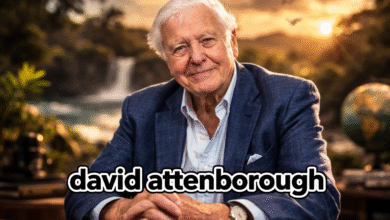Dafna Yoran: Justice With Compassion

Dafna Yoran is a name that resonates with those following the transformation of the American legal system. As a veteran prosecutor in Manhattan, Dafna Yoran has served for nearly 30 years in the District Attorney’s Office, where her unique blend of firm justice and empathetic reform has captured national attention. From her bold work in landmark cases like the Daniel Penny subway incident to her innovative approach to restorative justice, Dafna Yoran has emerged as a powerful force reshaping courtroom culture.
Early Life and Education: Inspired by Legacy
Dafna Yoran’s commitment to justice has deep roots. Born in Israel and later moving to the United States, she is the daughter of Shalom Yoran, a Holocaust survivor and Jewish resistance fighter. Shalom’s book, The Defiant, chronicling his experiences, has served as a powerful influence on Dafna Yoran’s sense of moral responsibility and public service.
She pursued her undergraduate studies at New York University (NYU) and completed graduate coursework at Columbia University. Yoran later earned her Juris Doctor from Brooklyn Law School, officially entering the legal world in 1994 after passing the New York Bar.
Legal Career: A Journey of Resilience and Innovation
Joining the Manhattan District Attorney’s Office in the mid-90s, Dafna Yoran steadily rose through the ranks. She currently serves as Senior Trial Counsel, a prestigious role that involves prosecuting complex felony cases, including homicides and civil rights violations.
Dafna Yoran’s approach goes beyond the traditional framework of prosecution. Her legal philosophy intertwines strict accountability with rehabilitation and restorative justice. She believes in empowering victims, promoting community healing, and offering offenders a chance to reintegrate meaningfully—when appropriate. This nuanced view of justice places her among the most progressive figures in American prosecution today.
Major Cases: Defining a Legacy
The Daniel Penny Subway Case
One of the most publicly debated cases handled by Dafna Yoran was that of Daniel Penny, a former Marine charged in connection with the 2023 chokehold death of Jordan Neely, a mentally ill homeless man on the New York City subway.
Dafna Yoran led the prosecution with conviction, emphasizing that the case was not about punishing self-defense, but about affirming the sanctity of human life—particularly those on the margins of society. Her closing statements during the trial stressed the responsibility individuals have when using force, and the importance of preserving human dignity, even in tense situations.
The Matthew Lee Case and Restorative Justice
In 2019, Dafna Yoran spearheaded a groundbreaking case involving Matthew Lee, who killed an elderly man during a robbery. Rather than pursuing a lengthy prison sentence, Yoran facilitated a restorative justice process—the first of its kind for a homicide case in New York.
The process allowed for a mediated dialogue between Lee and the victim’s family, offering a unique pathway to accountability and closure. This case not only demonstrated Dafna Yoran’s innovative thinking but also sparked a broader conversation about how justice can be achieved without defaulting to incarceration.
Public Reaction: Praise and Critique
Dafna Yoran’s work has made her a polarizing figure. On one hand, civil rights advocates and progressive legal experts hail her as a leader in justice reform. Her courage to push for new legal paradigms has earned her significant admiration in liberal circles.
However, conservative media outlets have criticized her approach. Networks like Fox News and publications like NaturalNews argue that her sentencing recommendations reflect political bias and jeopardize public safety. The Daniel Penny case, in particular, intensified these criticisms, with some accusing Dafna Yoran of allowing ideology to overshadow impartiality.
Political Views and Affiliations
Public records show that Dafna Yoran has made contributions to Democratic campaigns, including Hillary Clinton’s 2016 presidential run. She also donated to the Future Now Fund. While political donations are common among professionals, her support for progressive causes has further fueled the perception of partisanship from her detractors.
Personal Life: Strength in Identity
Beyond her professional life, Dafna Yoran is openly queer and married to Ana De Orbegoso, a renowned Peruvian artist and activist. The couple lives in Manhattan and supports various LGBTQ+ and arts-related initiatives.
Dafna Yoran’s openness about her identity not only brings representation to the legal field but also reinforces her dedication to equality, inclusion, and civil rights.
Public Presence and Media Involvement
Dafna Yoran is frequently invited to speak at events related to criminal justice reform, Holocaust remembrance, and public policy. Her interviews and keynote addresses often explore the human side of law—accountability balanced by compassion.
She has appeared in documentaries and educational forums discussing her father’s legacy, using those platforms to draw attention to moral responsibility in both history and law.
Future Outlook: Toward a Broader Impact
Dafna Yoran remains a central figure at the Manhattan District Attorney’s Office. However, many believe her influence could extend beyond local prosecution. Legal analysts suggest that she may be a future candidate for a judicial appointment or a federal justice reform panel.
Her experience, vision, and ability to straddle both tradition and progress make her a strong contender for leadership roles in broader legal policy reform.
FAQs About Dafna Yoran
Q1: Who is Dafna Yoran?
A: Dafna Yoran is a Senior Trial Counsel in the Manhattan District Attorney’s Office, known for her high-profile cases and advocacy for restorative justice.
Q2: What are Dafna Yoran’s most notable cases?
A: She is best known for leading the prosecution in the Daniel Penny subway chokehold case and the Matthew Lee restorative justice case.
Q3: What is Dafna Yoran’s legal philosophy?
A: Her philosophy focuses on accountability, rehabilitation, and restorative justice—seeking both legal outcomes and community healing.
Q4: Where did Dafna Yoran study law?
A: She earned her Juris Doctor from Brooklyn Law School and previously studied at NYU and Columbia University.
Q5: Is Dafna Yoran politically affiliated?
A: She has made donations to Democratic candidates and is known for her progressive stance on criminal justice.
Q6: Is Dafna Yoran married?
A: Yes, she is married to Ana De Orbegoso, a Peruvian visual artist and activist.
Q7: What makes Dafna Yoran unique among prosecutors?
A: Her focus on restorative justice and her ability to humanize legal proceedings make her stand out in a traditionally rigid legal system.
Q8: Has Dafna Yoran received criticism?
A: Yes, particularly from conservative media who believe her approach is too lenient and ideologically driven.
Q9: What are Dafna Yoran’s future aspirations?
A: While not confirmed, legal analysts speculate she could hold higher judicial or policy-oriented roles.
Q10: What impact has Dafna Yoran had on justice reform?
A: She’s played a key role in shifting public and legal perspectives on how justice should be administered, especially in complex social contexts.
Read also:Josephine Archer Cameron: Living Beyond the Spotlight



